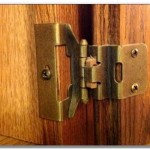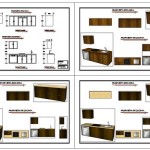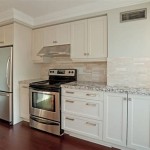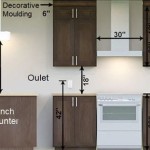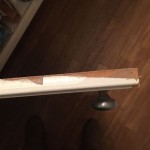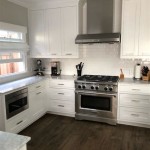Mennonite Kitchen Cabinet Makers: A Legacy of Craftsmanship and Quality
The term "Mennonite Kitchen Cabinet Makers" evokes a specific image: quality, durability, and a commitment to traditional craftsmanship. While not all kitchen cabinet makers are Mennonite, and not all Mennonites make kitchen cabinets, the association persists due to a historical and cultural connection to woodworking and a dedication to honest labor. This article will explore the origins of this association, the characteristics of Mennonite-built cabinets, and the factors that contribute to their enduring appeal in the modern market.
The roots of Mennonite involvement in woodworking stem from several factors. Historically, Mennonite communities often settled in rural areas, relying on agricultural self-sufficiency and developing skills in related trades to support their communities. Woodworking, including furniture and cabinet making, naturally emerged as a viable occupation, utilizing locally sourced materials. The emphasis on simplicity, functionality, and durability, core values within many Mennonite communities, directly translated into the designs and construction techniques employed in their woodworking practices. Furthermore, the strong work ethic instilled within the culture contributed to a commitment to producing high-quality, long-lasting products.
The reputation of Mennonite-built cabinets has spread beyond their immediate communities, attracting customers seeking alternatives to mass-produced, often lower-quality, options. The perceived value associated with these cabinets lies not only in their construction but also in the values attributed to the individuals who craft them: honesty, integrity, and a dedication to doing a job well. While modernization has influenced some Mennonite communities, many still uphold traditional woodworking practices, preserving a connection to a craft that has been passed down through generations.
The Defining Characteristics of Mennonite-Built Kitchen Cabinets
Identifying cabinets specifically made by Mennonite craftspeople can be challenging, as there is no standardized "Mennonite-made" label. However, several characteristics are often associated with cabinets produced by these artisans, providing clues for distinguishing them from mass-produced options. These characteristics typically reflect a focus on durability, functionality, and aesthetic simplicity.
One key characteristic is the use of solid hardwood. Unlike cabinets constructed with particleboard, MDF (medium-density fiberboard), or veneer, Mennonite-built cabinets often prioritize solid wood construction. Common wood choices include oak, maple, cherry, and walnut, all known for their strength, durability, and natural beauty. Solid wood provides inherent resistance to moisture damage and wear and tear, contributing to the longevity of the cabinets. The joinery techniques employed also reflect a commitment to structural integrity. Dovetail joints, mortise and tenon joints, and other time-tested methods are frequently used to ensure a strong and secure connection between cabinet components.
Another defining characteristic is the emphasis on handcraftsmanship. While modern tools and equipment may be used in the construction process, handcrafting techniques are often employed to achieve a higher level of precision and attention to detail. This can include hand-sanded surfaces, meticulously applied finishes, and custom details that set the cabinets apart from mass-produced alternatives. The level of customization offered is also often a differentiating factor. Mennonite cabinet makers are typically willing to work with clients to create custom designs that meet specific needs and preferences, offering a level of personalization that is difficult to find with off-the-shelf options. This can include unique storage solutions, specific dimensions, and custom finishes.
Finally, the finishes used on Mennonite-built cabinets often prioritize durability and natural beauty. While a variety of finishes may be offered, natural oil finishes and catalyzed conversion varnishes are common choices. These finishes provide excellent protection against scratches, stains, and moisture damage, while also enhancing the natural grain and color of the wood. The emphasis is typically on a durable, long-lasting finish that showcases the beauty of the wood, rather than concealing it with opaque paints or stains.
The Enduring Appeal in the Modern Market
Despite the rise of mass-produced furniture and cabinets, Mennonite-built kitchen cabinets continue to maintain a strong appeal in the modern market. This can be attributed to several factors, including a growing appreciation for craftsmanship, a desire for sustainable products, and a preference for personalized design.
The increasing awareness of the environmental impact of mass-produced goods has led many consumers to seek out sustainable and ethically sourced alternatives. Mennonite cabinet makers often utilize locally sourced wood and employ traditional construction techniques that minimize waste. Furthermore, the durability of their cabinets reduces the need for frequent replacements, contributing to a longer lifespan and a lower environmental footprint. The focus on quality and longevity aligns with the principles of sustainable consumption.
The demand for personalized design solutions also contributes to the appeal of Mennonite-built cabinets. Homeowners are increasingly seeking to create kitchens that reflect their individual style and needs. The ability to customize cabinet designs, dimensions, and finishes allows for the creation of unique and functional spaces that cannot be achieved with standard, mass-produced options. This level of personalization provides an opportunity to create a kitchen that truly reflects the homeowner's preferences and lifestyle.
Moreover, the perceived value associated with craftsmanship plays a significant role. In a world of increasingly automated production, the attention to detail and dedication to quality that characterizes Mennonite-built cabinets is highly valued. Consumers are willing to pay a premium for products that are made with care and attention, reflecting a desire to support skilled artisans and invest in long-lasting pieces. The narrative surrounding Mennonite craftsmanship, with its emphasis on honest labor and traditional values, adds to the perceived value and appeal.
Factors Influencing the Cost of Mennonite Kitchen Cabinets
The cost of Mennonite kitchen cabinets can vary significantly depending on several factors. Understanding these factors is crucial for potential buyers to make informed decisions and budget accordingly. While generally more expensive than mass-produced options, the long-term value and durability often justify the investment for those seeking high-quality, custom-built cabinetry.
The type of wood used is a primary determinant of cost. Hardwoods like cherry and walnut are generally more expensive than oak or maple due to their availability, grain patterns, and natural beauty. The grade of the wood also affects the price, with higher grades having fewer knots and imperfections. Solid wood construction, as opposed to veneer or particleboard, will naturally increase the cost due to the material itself and the labor involved in working with solid wood.
The complexity of the design and the level of customization also influence the price. Simple, straightforward designs will typically be less expensive than intricate designs with custom features, such as specialized storage solutions, decorative moldings, or unique door styles. The amount of labor involved in crafting these custom elements directly impacts the overall cost. The finish chosen also contributes to the cost. Complex finishes, such as multi-step staining processes or hand-rubbed oil finishes, require more time and skill to apply, resulting in a higher price.
Finally, the location of the cabinet maker and the size of the project can also affect the cost. Shipping and transportation costs can add to the overall price, particularly if the cabinet maker is located far from the customer. Larger projects, involving a significant amount of cabinetry, may benefit from economies of scale, but the overall cost will still be higher than smaller projects. It's essential to obtain multiple quotes from different Mennonite cabinet makers to compare prices and ensure a fair and competitive offer.
Custom Amish Kitchen Cabinets Barn Furniture
Custom Amish Kitchen Cabinets Barn Furniture
Custom Amish Kitchen Cabinets Barn Furniture
Amish Kitchen Cabinets Custom American Made Showroom
Custom Amish Kitchen Cabinets Barn Furniture
8 Reasons Why Smart Homeowners Only Buy Amish Built Cabinets Misty Mountain Cabinetry
8 Reasons Why Smart Homeowners Only Buy Amish Built Cabinets Misty Mountain Cabinetry
8 Reasons Why Smart Homeowners Only Buy Amish Built Cabinets Misty Mountain Cabinetry
Mennonite Disaster Service Volunteers Build Hope For Victims
Mennonite Home Gallery Pa Semi Custom Kitchen Cabinets Quartz Countertops
Related Posts

